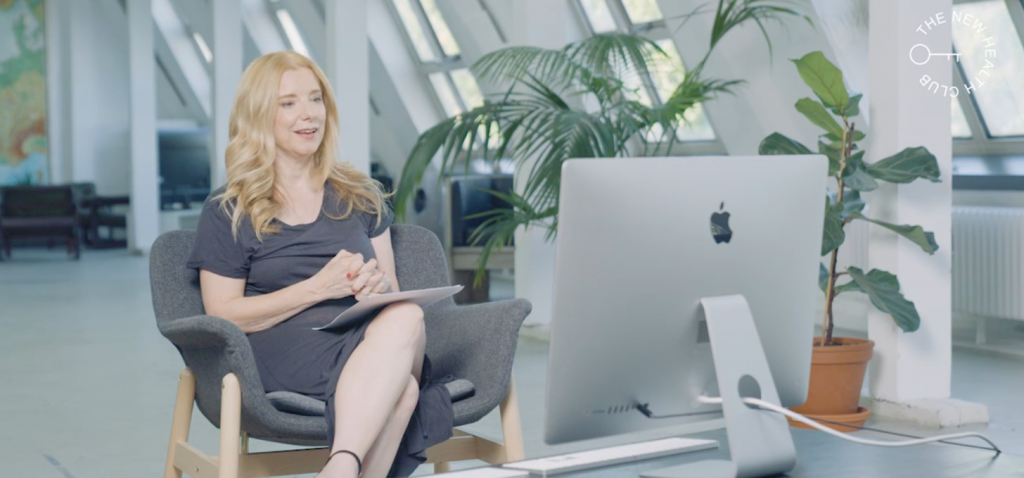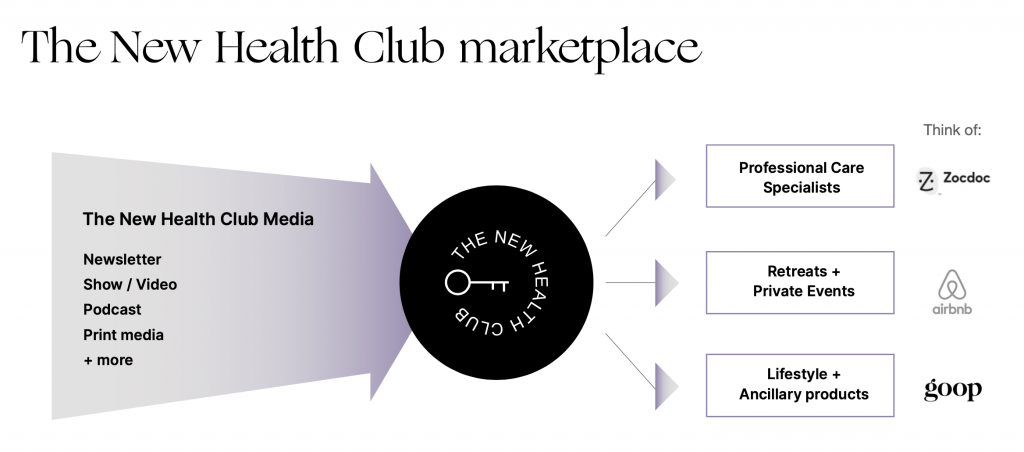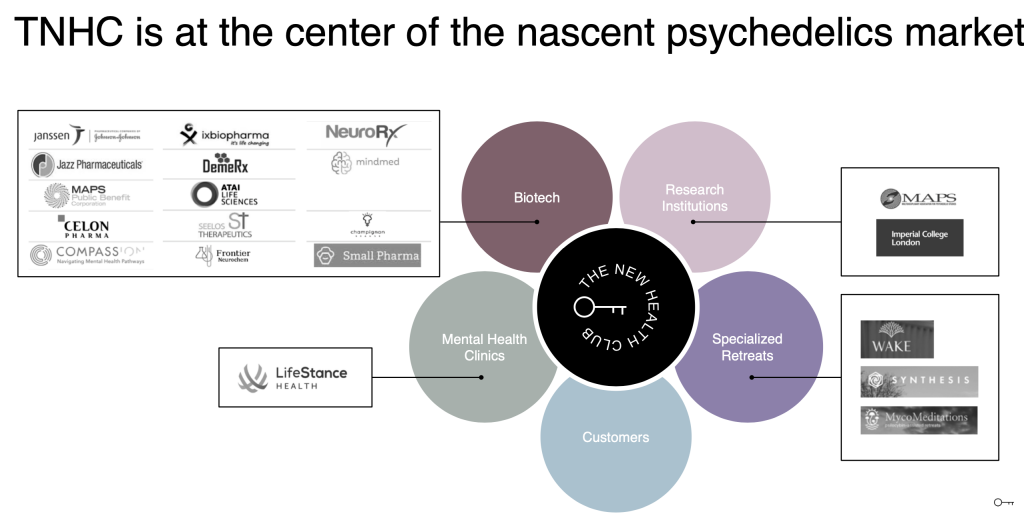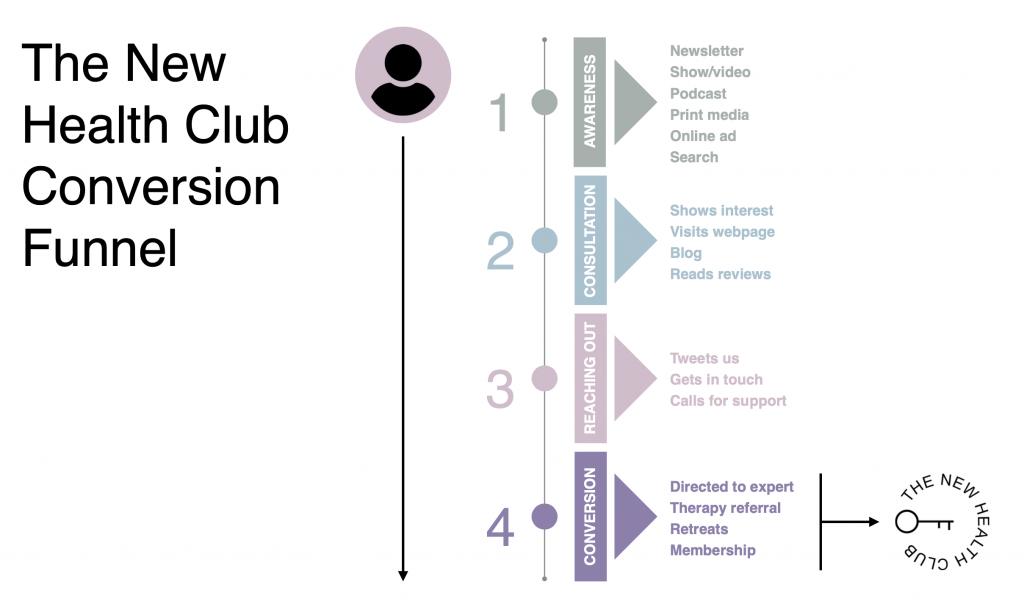Around the world, conversations about psychedelic medicine are starting to infiltrate everyday life. Major universities and nonprofits are funding groundbreaking research, private companies are raising hundreds of millions of dollars, and an entire new way to approach mental health is starting to materialize.
However, despite much of this progress, psychedelic drugs are still viewed with a skeptical lense. This is a result of the (failed) international drug war, corporate interest fueled propaganda, and the slow moving wheels of global bureaucracy.
These challenges that psychedelic medicine faces are often compounded by the lack of approachable information. Until very recently, those who had interest in psychedelic medicine therapies would have to dive deep into the web to find reliable (and easy to understand) information.
Now, on the heels of the global COVID-19 pandemic, major media outlets and consumer brands are starting to realize the importance of mental health and the realities that our world faces.
Skyrocketing rates of depression, anxiety, and other mental health challenges have made the need for alternative solutions and treatments very apparent. And the opportunity for entrepreneurs to capitalize on this industry is growing by the day.
Some of the biggest opportunities lie in the ability to speak to large audiences that are being completely ignored. Take, for example, parents or business executives who may experience tremendous amounts of stress and challenging situations. While alcohol and pharmaceutical drugs are socially accepted as treatments for high functioning adults, the idea of using psychedelic drugs would normally seem outrageous.
Yet, these are the people – those who often carry enormous responsibilities – that could greatly benefit from psychedelic medicines. And the people that surround them (whether that’s their own children or employees) stand to benefit equally as much.
In order for psychedelics to reach their fullest potential, we need more voices. Most importantly, there needs to be more of a conversation. We need to ‘normalize’ the idea that it’s OK for people to seek help through alternative medicines.
By producing podcasts, newsletters, a YouTube series and even hosting events, The New Health Club is on a mission to fill this gap in the market – to spread awareness of the power of psychedelics beyond today’s average consumer or enthusiast.
Innovators, industry thought leaders, and disrupters from the emerging world of mental wellness, mental health, and psychedelics from all around the globe come together to talk about their experiences and share their insights on The New Health Club platform.
Today, however, we get to hear insights from the founders of The New Health Club – Anne Phillipi and Christoph Haberbauer.
Continue reading to learn more about the company’s roadmap, the challenges ahead, and the several barriers The New Health Club is striving to break.
Psychedelic Invest: Tell us a little about your personal story with psychedelics. How did this all start?
Anne Phillipi: As a journalist I worked for GQ and VOGUE, and Vanity Fair in Berlin, interviewing rockstars, movie stars, attending parties and all kinds of events. The hedonistic culture and party was part of my job.
But I had never taken psychedelics in my life, besides a very few encounters with MDMA during some Berlin nightlife moments. I was always terrified of drugs. At the same time, I was starting therapy in my thirties to find out certain things in my life that seemed to go the wrong way. After years, I realised that I kept telling the therapist the same thing all over again. I could not really see and feel what my life should be like.
After six years living in Los Angeles as a Hollywood reporter, I came back to Berlin around 2017. I didn’t really understand what the next step in my life could look like. Also many questions from years of therapy still seemed unanswered. It was in 2018 that a friend gave me Michael Pollan’s book, How To Change Your Mind. I felt like this is what I wanted my whole life: changing my mind. So I started my own psychedelic journey and went on a guided, safe and legal psilocybin experience at Synthesis in the Netherlands, which really showed me so many things about myself for the first time. I knew I would be able to work on my topics very differently with the support of psychedelics. And I knew I wanted to be part of this incredible psychedelic ecosystem, and so I started The New Health Club Podcast.

I had met a couple of people in the space and I felt attracted to the idea of building something new and I wanted to support the renaissance. I felt calm, excited, and that I was on the right path. I knew it was in the right environment when I got the chance to have lunch with Amanda Feilding of The Beckley Foundation in London. And when Covid hit, I knew psychedelics would be my thing for a long time.
People started to write personal messages to me about how they could not find any mental health solutions. That gave me even more confidence to start producing a weekly show. Then suddenly we had all the new voices, players, and CEOs on the show – you could say the Creme de La Creme. It’s been a fantastic journey so far.
PI: Do you think a lot of people can relate to your genuine interest in psychedelics?
Christoph Haberbauer: Absolutely. I have always been hyperactive, never diagnosed with ADHD and always considered it an asset to have superpowers of extra energies. I am an avid runner and cyclist, learnt every sport that came on the scene, such as kite surfing when it first surfaced and have visited every destination for this passion. I have also crossed the alps on a mountain bike and regularly do long sessions on my road bike.
Now that I have two daughters, and a very busy entrepreneurial life, it is hard to exert my physical energy in the same way and I have also realised that the endorphin rush I was seeking is an addiction in its own right. I never really felt `normal` and found it very hard to understand how people can sit in an office from 9-5; at the same time I realise our modern life necessitates a certain kind of stoicism. That is why I find plant medicine very enticing. To find a balance to be stoic and deal with the mundane stresses of life.
I do realise that many people in my inner circle do not have the same positive predisposition to life that I have and constantly worry, to the point where they have suffered depression and in the case of one of my best friends, took their own life.
I have gone through the pyramid of needs in my life and when I first got really successful I found a spot of emptiness. I realised that life is more than selling stuff and my major driver of happiness is human interaction. I love connecting people in social and in business circumstances. Being able to connect people with the right solutions for their utmost needs is the culmination of self-fulfilment.
At the same time I cannot deny that I see this timing for psychedelics as a once in a decade opportunity to build a business. I was at the largest asset manager in London when the financial system was crumbling in 2008 and ventured to Asia to start in ecommerce. To land in Jakarta when internet penetration was below 1% and seeing our company grow to get acquired by Alibaba was a major realisation how strong execution and a belief in a mission can change the course of history. I saw this effect on a smaller scale when I followed my belief that furniture would take the same trajectory as fashion to penetrate online sales and successfully exited 2 companies.
I now see the biggest opportunity of my life to drive a completely new way of mental health care and use my past experiences to achieve this.
PI: Now let’s take a step back and look at the current psychedelic ecosystem. Where are the opportunities for folks trying to get into the space? Any challenges?
AP: First of all, I think the psychedelics industry is full of opportunities and exciting things, some of them I can’t even believe are happening. For example, we just got into a big accelerator program by Axel Springer & Porsche called APX.
I never thought that big, established brands like this would get the topic so quickly. To me this is huge. It is amazing to see others de-stigmatize the topic, which is needed. And I think it will open the gates for many other small businesses looking to hit the market.
The biggest challenge, in my opinion, is that the common use of psychedelics is still somewhat stigmatized. Overtime, this will change, but that doesn’t mean it’s too early for folks who want to enter the space.
I also think there will be new opportunities in unique molecules we can’t even think of now. To be honest, I am a firm believer that this time, in the third wave, we will follow through with bringing these substances back into our lives to support us and heal us in a new way. Next to the incredibly high rates of people suffering from depression, there is a new consciousness in the making.
PI: What are you most excited about?
AP: I am interested and fascinated by clever, elegant and entertaining solutions to destigmatize psychedelics, to turn them into tools, to resolve mental health problems, but also to allow people in a safe and culturally informed setting, to experience spiritual moments. I think science and spirituality can and should co-exist.
Another thing I am very excited about, is to develop culturally informed and customised treatments, and promote the research of new molecules. I also think that good scientists should always look into the work of shamans and indigenous people to learn from them. At the same time these people, who have been cultivating psychedelic treatments for generations, should be making money from their wisdom. I am a big fan of reciprocity.
CH: The most exciting part about being part of this ecosystem is the common belief in a mission. Certainly the suits have arrived, but even the early institutional backers dont have the characteristics of investment bankers that I have seen in other industries. It is a real movement.
That said, we want to avoid the mistakes of times past and really be professional from the get go. That is why the narrative is so important and why I believe in the mission of The New Health Club.
PI: Speaking of your company, can you fully introduce The New Health Club, what it stands for, and why it is unique?
AP: I wanted to start talking about psychedelics really differently. Not ONLY spiritual, not ONLY medical, but in a way that it can become part of a “normal” conversation.
I started with the podcast and the shows on YouTube. After a year or so, it was clear that everyone on the show was contributing to the psychedelic renaissance. Covid kept people at home, so I was able to have so many people on the show virtually.

But now The New Health Club is turning into a unique platform. We want to promote and create a place where consumers and patients can get accustomed to the new world of psychedelics and feel safe and informed in doing so. We create a place for ordinary folks to go to find legal, safe and vetted treatments and experiences.
We constantly work on destigmatizing psychedelics and The New Health Club holds a unique position in this new psychedelic world as a bridge between the science, the investment community, and the people who need the substances to treat their depression or improve their lives.

PI: What do you see for the future of psychedelics?
AP: I think the future of psychedelics will be in the normalisation of these substances by de-stigmatisation. I would think in ten years, the use of psychedelics to heal trauma, depression and related mental health issues will be normal. I think there will be substances that support performances, creativity and thinking that are not considered anymore a pure “optimizer.”
CH: The future of psychedelics will come hand in hand with a general revolution of healthcare (see teletherapy).
We certainly see a much more individualised care for patients supplemented with digital solutions. The New New Health Club has a clear vision to provide legal, safe and vetted experiences and we certainly intend to be fully compliant with the regulatory environment at the same time pushing the boundaries of solutions within the digital transformation lifecycle.
PI: And what does the future hold for The New Health Club?
AP: The big topic next to our de-stigmatizing content and events are the connections between the new psychedelic tools and the customer/patient.
We want to create a platform where people can get access to legal, safe and vetted psychedelic treatments and experiences. For example, questions about microdosing are on the rise. Our funnel is a good place for these people to start: People listen to the podcast, learn more on our blog, request treatment options, and get directed to an expert.

It is all about how to bring these substances and tools to the patient and consumer. How to do it effectively is something we are figuring out and looking into various collaborations.
I am also realizing that there is kind of an “inbetween” group of people out there. People who are not clinically depressed or just interested in experiecing psychedelics. They are dabbling in microdosing, are often not really aware yet of possible underlying issues, having post-COVID issues, and not able to get back to the life before. This is a group of people we are looking into right now.
CH: Connecting the dots in the delivery of these new mental health tools will lead us further down the path of a vertical integration with selected partners. First we need to make sure that we can provide safe and legal experiences, then we can make sure each member gets the very best service catered to their individual needs.
Furthermore, the educational element of The New Health Club has a lot of runway and we are exploring exciting new formats to keep our members updated on the latest research and studies.
To learn more about The New Health Club, visit their website here